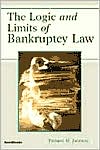Category Books
- Fiction Books & Literature
- Graphic Novels
- Horror
- Mystery & Crime
- Poetry
- Romance Books
- Science Fiction & Fantasy
- Thrillers
- Westerns
- Ages 0-2
- Ages 3-5
- Ages 6-8
- Ages 9-12
- Teens
- Children's Books
- African Americans
- Antiques & Collectibles
- Art, Architecture & Photography
- Bibles & Bible Studies
- Biography
- Business Books
- Christianity
- Computer Books & Technology Books
- Cookbooks, Food & Wine
- Crafts & Hobbies Books
- Education & Teaching
- Engineering
- Entertainment
- Foreign Languages
- Game Books
- Gay & Lesbian
- Health Books, Diet & Fitness Books
- History
- Home & Garden
- Humor Books
- Judaism & Judaica
- Law
- Medical Books
- New Age & Spirituality
- Nonfiction
- Parenting & Family
- Pets
- Philosophy
- Political Books & Current Events Books
- Psychology & Psychotherapy
- Reference
- Religion Books
- Science & Nature
- Self Improvement
- Sex & Relationships
- Social Sciences
- Sports & Adventure
- Study Guides & Test Prep
- Travel
- True Crime
- Weddings
- Women's Studies
Logic and Limits of Bankruptcy Law »

Authors: Thomas H. Jackson
ISBN-13: 9781587981142, ISBN-10: 1587981149
Format: Paperback
Publisher: Beard Books, Incorporated
Date Published: October 2001
Edition: (Non-applicable)
Author Biography: Thomas H. Jackson
Thomas H. Jackson is Professor of Law, Harvard Law School.
Book Synopsis
As headlines about cash-rich corporations filing for Chapter 11 are appearing more and more frequently, bankruptcy law has come under sharp public scrutiny. Critics feel that irresponsible corporations and individuals may be using the law unfairly. In this clearly written book, legal scholar Thomas H. Jackson identifies the underlying principles of bankruptcy law and develops an economic/psychological analysis of its main problems—a framework that permits him to view the field as a whole rather than as a collection of disparate policies and historical artifacts.
Dealing first with the use of bankruptcy to adjust creditors' relations among themselves, Jackson shows that individual creditors will attempt to recover as much of the bankrupt firm's assets as they can. But to maximize the value of the assets, the creditors must act collectively to apportion them according to the priority of entitlements that existed before the bankruptcy.
This is a claim with sweeping implications, and Jackson not only supports it convincingly but examines in some detail the various consequences of adopting it. He takes up several of the most controversial issues in bankruptcy policy today, including the treatment in bankruptcy of collective labor agreements and the recognition of unmatured tort claims of the kind involved in the Manville bankruptcy. His thoughtful analysis arrives at results that are consistent with his economic framework but that espouse no single political ideology.
Turning then to the right of a financial fresh start for debtors who are not firms but human beings, Jackson thaws on recent ideas in psychology to explain why the right exists and why it cannot be waived.
He thus provides a comprehensive scheme for evaluating the principal features of the existing bankruptcy system and for comparing them with past and future alternatives. The book will be of keen interest not only to the specialist but also to those who want to know more about the institution of bankruptcy and its place in our legal system.
Table of Contents
| Introduction: The Two Roles of Bankruptcy Law | 1 | |
| 1 | The Role of Bankruptcy Law and Collective Action in Debt Collection | 7 |
| 2 | Determining Liabilities and the Basic Role of Nonbankruptcy Law | 20 |
| 3 | Refining Liabilities: The Basic Trustee Avoiding Powers of Section 544 | 68 |
| 4 | Determining the Assets Available for Distribution | 89 |
| 5 | Executory Contracts in Bankruptcy: The Combination of Assets and Liabilities | 105 |
| 6 | Prebankruptcy Opt-Out Activity and the Role of Preference Law | 122 |
| 7 | Running Bankruptcy's Collective Proceeding | 151 |
| 8 | Timing the Bankruptcy Proceeding: The Problems of Proper Commencement | 193 |
| 9 | Reconsidering Reorganizations | 209 |
| 10 | The Fresh-Start Policy in Bankruptcy Law | 225 |
| 11 | The Scope of Discharge and Exempt Property | 253 |
| Index to Bankruptcy Code Sections | 281 | |
| General Index | 283 |
Subjects
 Business & Commercial Law
Business & Commercial Law  Bankruptcy Law
Bankruptcy LawLaw
 Business, Commercial & Financial Law
Business, Commercial & Financial Law  Bankruptcy Law
Bankruptcy LawNonfiction
 Law
Law  Business, Commercial & Financial Law
Business, Commercial & Financial LawNonfiction
 All Nonfiction
All Nonfiction  Business, Commercial & Financial Law
Business, Commercial & Financial LawPolitical Books & Current Events Books
 Law
Law  Business, Commercial & Financial Law
Business, Commercial & Financial Law
